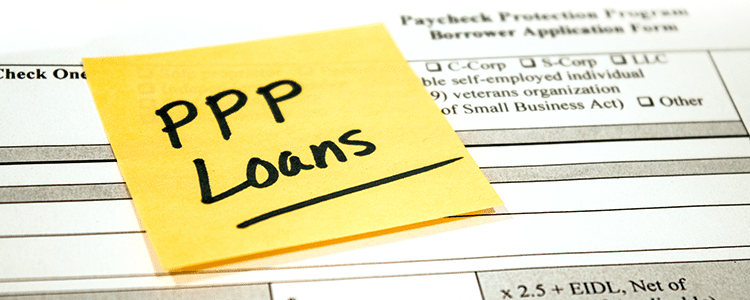 On October 26, 2020, the U.S. Small Business Administration (SBA) issued a notice that it intends to release two new forms relating to borrowers’ good faith certifications that current economic conditions made the Paycheck Protection Program (PPP) loan necessary to ongoing business operations. The new documents are Form 3509 – Loan Necessity Questionnaire (For-Profit Borrowers) and Form – 3510 Loan Necessity Questionnaire (Non-Profit Borrowers).
On October 26, 2020, the U.S. Small Business Administration (SBA) issued a notice that it intends to release two new forms relating to borrowers’ good faith certifications that current economic conditions made the Paycheck Protection Program (PPP) loan necessary to ongoing business operations. The new documents are Form 3509 – Loan Necessity Questionnaire (For-Profit Borrowers) and Form – 3510 Loan Necessity Questionnaire (Non-Profit Borrowers).
The forms indicate that they will be required for borrowers who, combined with their affiliates, received PPP loans of $2 million or more. Borrowers must respond to their lenders within just ten days following receipt of the forms. Although the forms have not been officially released by the SBA, borrowers with aggregated PPP loans of $2 million or greater should review the forms and begin compiling necessary data to ensure their ability to respond in a timely manner.
Borrowers should note that the information requests include both a Business Activity Assessment and a Liquidity Assessment. The Business Activity Assessment requires information relating to the impact of COVID-19 on a borrower’s business, such as
- gross revenue in the second quarter of 2020 compared to that of the second quarter of 2019;
- the nature and extent of changes to business operations related to government shutdown orders; and
- any capital improvements made between March 13, 2020 and the end of the borrower’s covered period.
The Liquidity Assessment requires documentation of the following items:
- the cash position of the borrower immediately prior to the PPP loan application;
- dividends or distributions paid between March 13, 2020 and the end of the borrower’s covered period;
- payments of outstanding debt between March 13, 2020 and the end of the borrower’s covered period;
- compensation paid to employees or owners in excess of $250,000 on an annualized basis;
- the book value of the borrower immediately prior to the PPP loan application; and
- receipt of funds from any CARES Act program other than the PPP.
Receipt of the forms should not necessarily be viewed as an indication of the SBA’s intent to challenge a borrower’s loan eligibility or entitlement to loan forgiveness. Rather, the rationale seems to focus on information gathering, maximizing program integrity and protecting taxpayer resources. It must be noted, however, that the SBA can use the information obtained for purposes of reviewing a borrower’s good-faith certification that the loan was necessary due to economic uncertainty and to support ongoing operations.
The instructions to the forms indicate that failure to submit a timely response may result in a determination by the SBA that the borrower was ineligible for:
- the PPP loan;
- the PPP loan amount; and/or
- any forgiveness amount claimed.
Additionally, failure to respond on time may be cause for the SBA to reject a borrower’s request for forgiveness, and to seek repayment of the loan and/or pursue alternative remedies.
FLB’s attorneys have extensive experience in all matters relating to PPP and the CARES Act. We are here to provide guidance to businesses and business owners facing the unique issues brought about by the COVID-19 pandemic, including loan forgiveness and compliance with SBA requirements.









